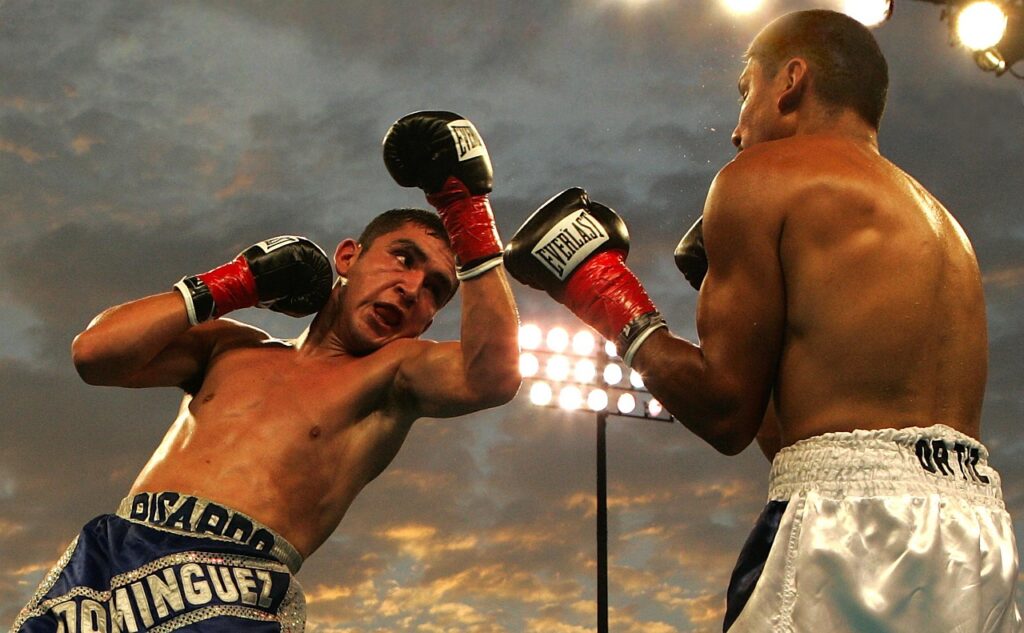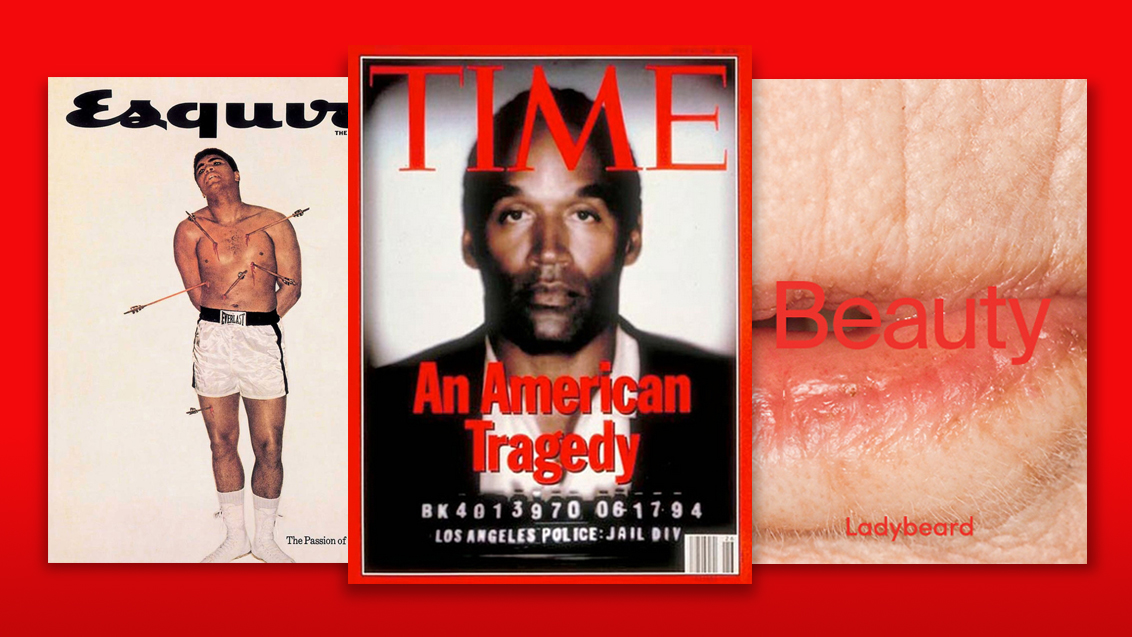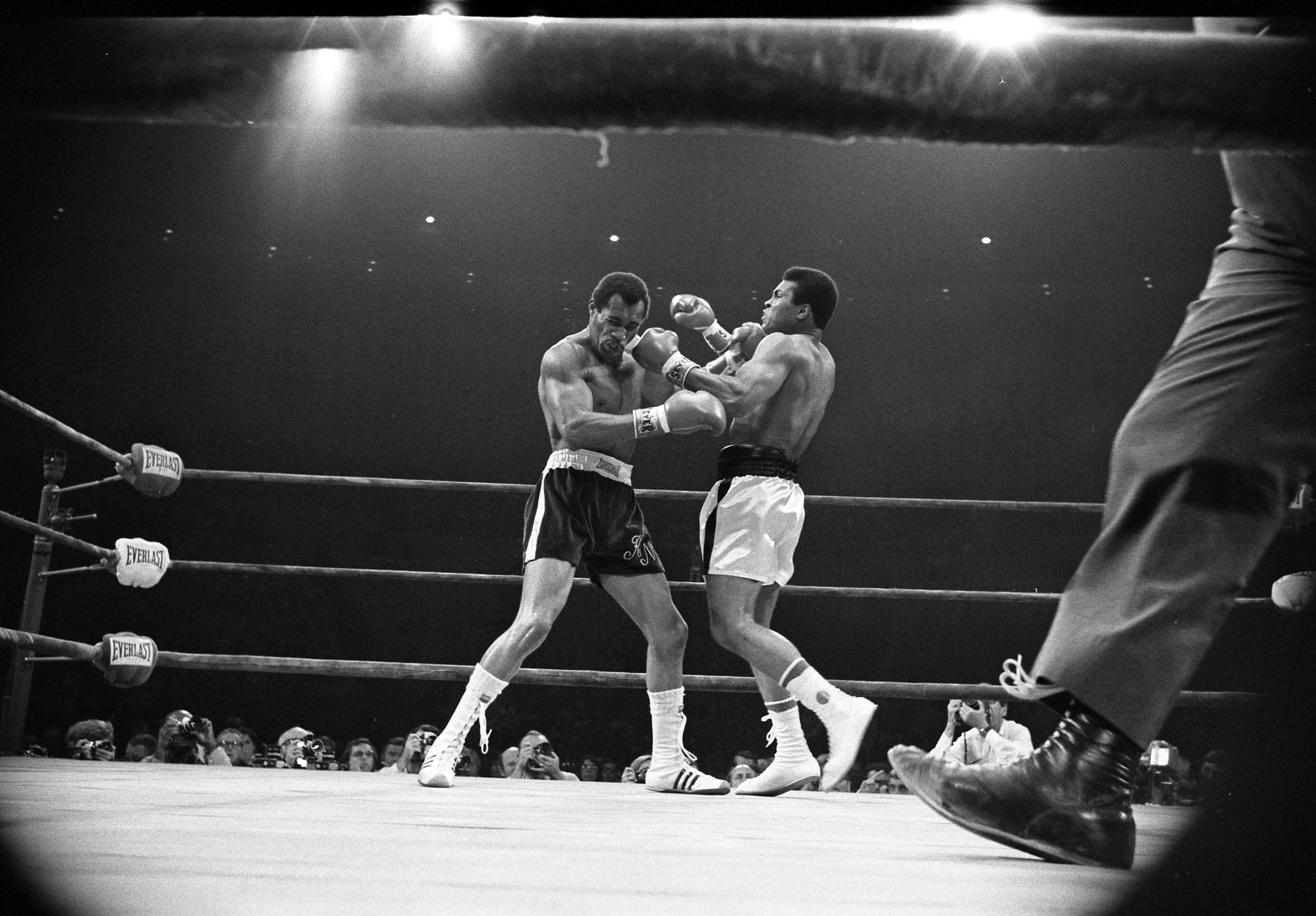
The boxing world mourns the passing of Joe Bugner, a towering figure in the sport who engaged in memorable contests with some of the greatest heavyweights of his generation. Bugner, a Hungarian-born British-Australian fighter, died at the age of 75 in Brisbane, Australia, leaving behind a legacy defined by remarkable toughness, technical prowess, and an unwavering willingness to face the best. His career, spanning over three decades, saw him accumulate an impressive record and earn titles across Europe and the Commonwealth, cementing his place in boxing history.
Bugner’s journey from a young immigrant in the United Kingdom to a world championship contender is a testament to his resilience and dedication. He navigated a formidable era of heavyweight boxing, sharing the ring with legends such as Muhammad Ali and Joe Frazier, often going the distance in gruelling 12 and 15-round battles. These encounters, while often resulting in decision losses, only enhanced his reputation for durability and courage, earning him the respect of both opponents and fans.
Beyond the ropes, Bugner’s life was as varied and captivating as his boxing career, encompassing forays into acting and television appearances that endeared him to a broader audience. His passing marks the end of an era for many who followed his storied career, but his contributions to boxing, his memorable fights, and his unique personality will continue to be remembered and celebrated.

1. **Early Life and Hungarian Roots**József Bugner, later known as Joe, was born on March 13, 1950, in Szoreg, Hungary. His early years were shaped by the tumultuous political landscape of his homeland. Following the 1956 Soviet invasion of Hungary, Bugner and his family made the difficult decision to flee their country, seeking refuge and a new beginning elsewhere. This formative experience of displacement and resettlement would undoubtedly instill in him a profound sense of resilience that later defined his professional career.
Eventually, the Bugner family settled in the United Kingdom, where Joe spent his formative years. It was in this adopted homeland that he discovered his prodigious talent for boxing. As a teenager, he quickly rose through the amateur ranks, showcasing an innate ability and a powerful physique. His dedication and natural aptitude culminated in a significant early achievement: winning the ABA light heavyweight title at the remarkably young age of 17, signaling the arrival of a potential star in British boxing.
Read more about: Beyond the Headlines: Exploring the Dark History and Enduring Legends of Serial Killers

2. **Professional Debut and Rapid Ascent**Bugner’s professional boxing journey began in 1967, and it commenced with an unexpected setback. He made his pro debut and promptly lost his first match, a moment that might have deterred a less determined fighter. However, this initial defeat proved to be an anomaly rather than a predictor of his future.
Demonstrating remarkable resolve and skill, Bugner swiftly rebounded from this early stumble. He embarked on an extraordinary winning streak, securing 18 consecutive victories, followed by winning 31 of his next 32 fights, with one draw. This impressive run of success rapidly established him as a serious contender in the heavyweight division, drawing attention from across the boxing world and setting the stage for his emergence as a prominent figure.
His early career was characterized by a rapid development of his technical abilities and a growing confidence in the ring. Each victory built upon the last, solidifying his reputation as a formidable opponent. This swift ascent from a professional debut loss to a contender with a dominant record highlighted Bugner’s exceptional talent and his unwavering dedication to the demanding sport of boxing.
Read more about: Consumer Reports Guide: Top 14 Cars of 2024-2025 Redefining Safety with Cutting-Edge Technology and Unbiased Crash Test Results

3. **Controversial Victory Over Henry Cooper**One of the most defining moments in Joe Bugner’s early professional career came in 1971 when he faced the revered British fighter Henry Cooper at Wembley. This bout was not merely a significant challenge but also an opportunity for Bugner to claim the European, British, and Commonwealth heavyweight championships, titles that held immense prestige within the UK boxing scene. The fight was intensely competitive and closely contested, captivating the boxing public.
Bugner ultimately secured a victory over Cooper by a controversial decision, earning him the triple crown of titles. The decision was particularly contentious because Bugner won by a razor-thin margin, a quarter of a point, at a time when fights were often scored in fractions. This narrow and disputed outcome meant that, despite his victory and championship belts, Bugner initially struggled for full acceptance from the British public and press in his adopted country, who largely adored Cooper. The win, however, undeniably solidified his status as a major player in the heavyweight division.
Adding to the gravity of the outcome, this controversial points win over Cooper forced the beloved British icon into retirement. While a monumental achievement for Bugner in terms of career progression and title acquisition, the manner of the victory and its aftermath cast a long shadow, shaping public perception of him in the initial years of his championship reign.
Read more about: Inside the US Army’s 250th Anniversary Parade: Tanks, Logistics, and Spectacle on the National Mall

4. **Claiming and Defending European Titles**Joe Bugner’s prowess as a heavyweight was repeatedly underscored by his success in the European boxing scene. After his initial triumph over Henry Cooper in 1971, which saw him capture the European title alongside the British and Commonwealth crowns, he continued to demonstrate his dominance. Although he briefly lost all three titles to Jack Bodell later that same year, Bugner’s resilience quickly shone through as he rebuilt his career.
He reclaimed the European heavyweight crown in 1972, a testament to his determination and skill. This period marked a sustained era of success for Bugner within Europe, as he successfully defended his European title an impressive four more times. His ability to regain and then consistently hold the European championship showcased his sustained technical ability and his capacity to remain at the pinnacle of regional boxing.
These multiple reigns as European Champion were critical in establishing Bugner’s international credibility. They proved he was not only a formidable puncher but also a tactically astute fighter capable of adapting to different opponents and maintaining a high level of performance over extended periods. His consistent presence atop the European heavyweight division positioned him perfectly for the global challenges that would soon follow.
Read more about: Inside Ukraine’s Elite Operations: Strategic Raids and Key Strikes Against Russian Targets in Crimea

5. **First Encounter with Muhammad Ali (1973)**In February 1973, Joe Bugner was presented with one of the most significant challenges of his career: a highly anticipated bout against the legendary Muhammad Ali in Las Vegas. At this point, George Foreman held the world heavyweight championship, but Ali remained the former and future champ, an undisputed icon of the sport. Facing Ali was a benchmark for any heavyweight, and Bugner approached the contest with his characteristic resolve.
Despite Ali’s renowned speed and agility, Bugner displayed remarkable resilience, taking the former champion the full 12 rounds. While Ali controlled much of the fight with his superior speed and accuracy, Bugner’s toughness ensured he remained competitive throughout the contest. The fight ultimately concluded with Ali winning by unanimous decision, but Bugner earned significant praise for his durability and for going the distance with such an formidable opponent, a feat that few could accomplish at the time.
This first encounter with Ali, though a loss, significantly enhanced Bugner’s reputation on the world stage. It demonstrated his capability to compete with the very elite of the heavyweight division and validated his status as a legitimate world championship contender. The experience also provided invaluable lessons, preparing him for future high-stakes battles against other boxing giants.

6. **The Grueling Battle Against Joe Frazier (1973)**Less than three months after his challenging bout with Muhammad Ali, Joe Bugner once again stepped into the ring with another titan of the heavyweight division: former world champion Joe Frazier. This bruising 12-round match took place later in 1973 in London, pitting Bugner against the relentless aggression and powerful left hook of “Smokin’ Joe.” It was another courageous performance by Bugner against an opponent renowned for his relentless pressure.
The fight proved to be an exceptionally grueling encounter, characterized by intense exchanges and a high physical toll on both combatants. Frazier, known for his relentless style, tested Bugner’s mettle over every round. Bugner, however, stood his ground, demonstrating his extraordinary toughness and unwavering spirit, once again going the distance against an all-time great. Frazier ultimately outpointed Bugner, but the close decision underscored Bugner’s formidable challenge.
The impact of this fight on Bugner was profound. He later recounted the severity of the encounter, stating, “I was sick for two months. My kidney and liver were bruised and I was urinating blood for two weeks.” This candid admission vividly illustrates the immense physical sacrifice and the sheer brutality of competing at the highest level against a fighter of Frazier’s caliber, further cementing Bugner’s reputation for enduring punishment and exhibiting immense fortitude in the ring.

7. **Reputation for Toughness and Technical Skill**Throughout the 1970s, Joe Bugner consistently ranked among the world’s top 10 heavyweights, a testament to his exceptional qualities as a fighter. He forged a reputation built on a remarkable combination of technical ability, unwavering toughness, and extraordinary durability. These attributes allowed him to not only survive but also to actively compete against an unparalleled roster of heavyweight legends in what is widely considered a golden era for the division.
Bugner’s technical skill was often highlighted by his ability to maintain composure under pressure and to execute his game plan against highly aggressive opponents. He was not merely a brawler; his boxing was nuanced, incorporating defensive maneuvers and well-timed counter-attacks that belied his often-criticized perceived lack of offensive explosiveness. This technical foundation was crucial for his longevity and success against more powerful punchers.
Perhaps his most celebrated qualities were his toughness and durability. His willingness to take on the best, including going the full distance with Muhammad Ali twice and Joe Frazier once, showcased a profound resilience that few fighters possessed. These characteristics earned him the profound respect of his peers and fans alike, establishing him as a boxer who, regardless of the outcome, would always stand firm and deliver a courageous performance.” , “_words_section1”: “1948
Read more about: Beyond the Odometer: Unpacking 3 Key Traits and 14 SUVs Built to Conquer 250,000 Miles and Beyond

8. **World Title Challenge Against Muhammad Ali (1975)** After his challenging encounters with both Muhammad Ali and Joe Frazier in 1973, Joe Bugner diligently rebuilt his record, securing eight consecutive victories. This impressive streak positioned him for a monumental rematch with Muhammad Ali in mid-1975, this time with the world heavyweight title on the line. Ali, having regained his championship by defeating Chuck Wepner—an opponent Bugner himself had bested five years prior—presented an even more formidable challenge.
The highly anticipated bout, breathlessly billed as “The Fight of a Lifetime,” took place in Kuala Lumpur, Malaysia, capturing global attention. It was a grueling 15-round contest that tested the endurance and skill of both fighters. Bugner, demonstrating the resilience that had become his trademark, once again took the legendary Ali the full distance, showcasing his unwavering determination on boxing’s biggest stage.
Despite his valiant effort, Ali ultimately won the fight by decision, retaining his unified heavyweight titles. While the outcome was another points loss for Bugner, his ability to stand toe-to-toe with Ali for 15 rounds in a world championship contest further cemented his status as a legitimate contender and an exceptionally durable fighter. This particular fight holds historical significance, as it was Ali’s final contest before his legendary “Thrilla in Manila,” placing Bugner squarely in the lineage of Ali’s most challenging opponents.

9. **Multiple Retirements and Resilient Comebacks** Joe Bugner’s boxing career, which spanned an extraordinary 32 years, was punctuated by a series of retirements and equally determined comebacks. His first departure from the professional ranks came in 1976, but the allure of the ring and financial realities often drew him back, leading to a sporadic but significant continuation of his career until 1999.
A notable return occurred after his second retirement, which followed a technical knockout defeat by Frank Bruno in 1987. Eight years later, facing financial difficulties, Bugner made a compelling comeback. This demonstrated an indomitable spirit that defied conventional wisdom about a boxer’s career longevity.
This later phase saw new successes, notably capturing the Australian heavyweight title in 1995. Even more remarkably, in 1998, at the age of 48, Bugner secured the World Boxing Federation’s version of the heavyweight championship. These triumphs showcased his enduring skill and unparalleled grit.
His final retirement arrived in 1999, at the age of 49, after a victory over Levi Billups in Australia. This marked a definitive end to a career that spanned five decades, highlighting Bugner’s love for boxing and his tenacity to compete at a high level.
10. **Life in Australia: “Aussie Joe”** A significant turning point in Joe Bugner’s life came with his relocation to Australia in the mid-1980s. This move marked a new chapter in terms of public perception and personal fulfillment. In Australia, Bugner found a level of acceptance and affection that had often eluded him in Britain, where the shadow of his controversial win over Henry Cooper had lingered.
In his adopted homeland, Bugner was warmly embraced by the public, earning him the affectionate moniker “Aussie Joe.” This newfound appreciation fueled a late-career resurgence. While he suffered a defeat by Frank Bruno in Australia in 1987, the support from his new fan base remained steadfast.
His commitment to Australian boxing culminated in significant achievements. In 1995, Bugner captured the Australian heavyweight title. He further solidified his status by winning the World Boxing Federation’s heavyweight championship in 1998, showcasing that even at 48, he could still compete for and win titles.
Bugner’s decision to make Australia his home provided him with renewed purpose and a supportive environment. His final professional fight, a victory over Levi Billups in 1999, offered a fitting farewell in the country that had so readily welcomed him.

11. **Notable Opponents Beyond Ali and Frazier** While Joe Bugner’s legendary encounters with Muhammad Ali and Joe Frazier rightly dominate discussions of his career, his extensive fight record reveals a formidable list of other distinguished opponents. Throughout his remarkable 32-year journey, Bugner consistently sought out and shared the ring with some of the most dangerous heavyweights of his era.
Among these adversaries was Earnie Shavers, known for possessing one of the most devastating punches in boxing history. Bugner faced Shavers in 1982, demonstrating his continued willingness to test himself against the sport’s heaviest hitters. Though he came up short, these fights underscored Bugner’s courage.
Other significant figures included Ron Lyle, a powerful contender, and the future British star Frank Bruno. Bugner also fought Marvis Frazier, Joe Frazier’s son, in 1983. His consistent engagement with top-tier talent, including victories over respected contenders such as James Tillis and Greg Page, further illustrates the depth and quality of his competition.
12. **A Career in Film and Television** Beyond the boxing ring, Joe Bugner cultivated a diverse second career in the entertainment industry, venturing into film and television. His imposing physique and recognizable persona made him a natural fit for acting roles, pursued sporadically from the late 1970s through 2010.
One of his most notable acting credits came in the 1994 action film ‘Street Fighter,’ where he starred alongside Jean-Claude Van Damme. This role cemented his place in cult cinema. Bugner also made appearances on various TV series, including ‘Time Trax,’ ‘Hey Dad!,’ ‘The Lost World,’ and ‘Journey to the Center of the Earth.’
Bugner’s connection to cinema extended beyond acting; he served as an expert adviser for the 2005 film ‘The Cinderella Man.’ This experience, however, was not without controversy. After being dropped from the project, Bugner famously expressed his displeasure, reportedly calling the film’s star, Russell Crowe, “a gutless worm and a f*****g girl.”
Later, Bugner embraced reality television, appearing on the UK version of ‘I’m a Celebrity…Get Me Out of Here!’ in 2009, and ‘The Contender Australia.’ These appearances allowed the public to see a different, more personal side of the former champion.
Read more about: A Maestro of Mirth: Unpacking Bob Newhart’s Enduring Legacy and How His Deadpan Wit Reshaped the Landscape of American Comedy
13. **The “Fourth Best Heavyweight of the 1970s” Argument** While Joe Bugner did not capture a world heavyweight title in the 1970s, a compelling argument exists that he was, in fact, the fourth-best heavyweight boxer for that entire decade. This places him in truly elite company, directly behind Muhammad Ali, Joe Frazier, and George Foreman.
The strength of this argument lies in Bugner’s willingness and ability to contend with the very best. He went the distance with Ali twice and Frazier once, grueling encounters few fighters could endure. His presence at the top of the rankings throughout the decade, coupled with his technical skill and unparalleled toughness, makes a strong case for his high standing in a golden age of heavyweight boxing.
Despite his formidable record, Bugner spent the decade chasing a fight with George Foreman, which never materialized professionally. Intriguingly, they did spar, and Bugner reportedly believed he could defeat Foreman. This unfulfilled ambition adds another layer to the discussion of his potential.
Beyond specific ranking, Bugner’s enduring legacy from the 1970s is profound. Some argue the “Bugner of the 1970s was good enough, and fought elite competition often enough, to warrant being called the second-best British heavyweight of all time, behind only Lennox Lewis.” This high praise underlines the extraordinary quality of his prime years.

14. **Tributes from the Boxing World** Upon the news of Joe Bugner’s passing at 75, the boxing world united in offering heartfelt tributes. Frank Bruno, a fellow British heavyweight and former opponent, tweeted, “RIP Joe Bugner just heard sad news of the passing of Joe.” Bruno recalled Bugner as “a character” who “played Mr bad guy” during their fight promotion, a testament to his engaging personality.
Prominent British boxing promoter Frank Warren also expressed sorrow, tweeting, “Sad news to hear of the passing of Joe Bugner, former British, European and Commonwealth Champion, and a man who went the distance with both Muhammad Ali and Joe Frazier.” Warren also noted Bugner’s historical significance: “He also participated in the first fight I did on ITV – a great man who will be missed. I’m sending my regards to his family.”
These messages from figures like Bruno and Warren underscore the deep respect Bugner commanded. They recognized not just his championship accolades but also his remarkable toughness and willingness to face the era’s most formidable opponents. His contributions extended beyond mere wins and losses, shaping moments in British boxing history.
The outpouring of tributes collectively portrayed Bugner as a significant figure whose courage, resilience, and unique character resonated deeply. His passing marks a moment of reflection, acknowledging the end of an era represented by one of boxing’s truly unique personalities.
Read more about: From Celluloid to Casks: A Deep Dive into the Evolving World of Celebrity-Owned Consumer Brands
15. **His Enduring Professional Record and Legacy** Joe Bugner’s professional boxing career concluded with an extraordinary record: 69 wins, 13 losses, and 1 draw, with 41 of those victories coming by knockout. This record, accumulated over 83 contests spanning 32 years, stands as a testament to a career fought predominantly at the highest echelons of heavyweight boxing.
Beyond the statistics, Bugner’s legacy is defined by his unwavering willingness to engage with legends like Muhammad Ali and Joe Frazier, taking them the distance in iconic battles. His ability to withstand their formidable power and skill, even in defeat, cemented his reputation for unparalleled toughness and durability. He was a constant presence in the world’s top 10 heavyweights throughout the 1970s.
His consistent capture and defense of the British, Commonwealth, and European titles on multiple occasions further highlight his dominance. Even in his later career, his ability to return and claim titles in Australia and a version of the WBF championship at an advanced age underscored his unique passion and commitment.
The passing of Joe Bugner marks the end of an era for many who followed his storied career. His contributions to boxing, characterized by memorable fights and a distinctive personality, ensure his journey will continue to be remembered and celebrated. From his Hungarian roots to “Aussie Joe,” Bugner’s life was a testament to resilience, courage, and an enduring spirit.
Read more about: Duke Cunningham, 83, Dies: Tracing the Complex Legacy of a Vietnam War Hero and Convicted Congressman
Joe Bugner’s life, both inside and outside the boxing ring, was a compelling narrative of grit, resilience, and an unyielding will to overcome. From fleeing his war-torn homeland as a child to standing toe-to-toe with the greatest heavyweights in history, his journey was marked by profound challenges and remarkable triumphs. While his final bow from the sport at 49 years old brought an end to an active career, his legacy remains firmly etched in the annals of boxing history. He was a fighter who, through sheer determination and a unique spirit, earned the profound respect of his peers and fans, proving that true champions are defined not just by titles, but by the battles they endure and the courage they display. His story serves as an enduring reminder of a golden era of boxing and the extraordinary individuals who shaped it.







